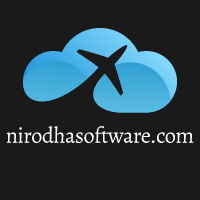Overview of the current state of the business class service
Originally designed to provide improved comfort and exclusivity, Business Class has come a long way from just improved seats to a full range of high-end services. The modern business class includes not only more spacious seats and improved meals, but also a number of additional amenities such as access to VIP lounges at airports, the possibility of quick check-in and an increased level of service on board.
Today, business class passengers expect not only comfort, but also personalized service. They value high-quality service, including customized culinary preferences, access to the latest generation of entertainment systems and high-speed internet. Privacy and privacy are also important factors, which is especially important for business travelers who need to work during the flight.
The importance of mobile and web technologies in aviation
Mobile and web technologies have had a huge impact on the aviation industry, transforming the way airlines interact with passengers and increasing the level of passenger experience. Their integration into aviation services has allowed passengers to enjoy convenience and efficiency in all aspects of their travels – from booking and check-in to flight data management and access to on-board services.
Mobile applications have made the process of booking tickets and check-in more convenient and accessible. Passengers can now easily check flight schedules, book and change tickets, and check in for flights using their smartphones. This reduces dependence on traditional booking methods and simplifies the travel planning process.
Innovations in booking and check-in
Innovations in flight booking and check-in have significantly changed the aviation industry, simplifying and speeding up these processes. Mobile apps play a key role in this transformation, giving passengers the opportunity to book and check in for flights from the comfort of their home or office. These applications have not only reduced the time required for booking and check-in, but also reduced the need for paper documents, which is a step towards environmental friendliness.
The apps allow users to store all necessary documents digitally, including tickets and boarding passes, making the travel process smoother and less stressful. In addition, many applications offer real-time flight status tracking functions, which helps passengers stay informed of any schedule changes.
Personalized approach to the passenger using technology
A personalized approach to passengers based on the use of modern technologies is becoming a key factor in the aviation industry. This approach covers several aspects:
- Application of Artificial Intelligence and Machine Learning: Modern technologies, especially AI and machine learning, play an important role in adapting services to the individual needs of passengers. These technologies are able to analyze large amounts of data about travelers, providing airlines with unique insights that can be used to personalize services.
- Integrating Passenger Preference Data: Collecting and analyzing passenger preference data allows airlines to offer a more targeted and customized service. This includes personalized booking offers and special promotions based on previous trips and selected destinations.
Improving the on-board experience through technology
Improving the on-board experience through technology is becoming increasingly important in modern aviation. The introduction of entertainment systems based on web and mobile technologies plays a key role in this process. Today, passengers have access to a wide range of entertainment directly on their personal devices or through on-board screens. This can include movies, music, games, and even internet access.
Such systems allow passengers to spend time in flight more exciting and comfortable.In addition, using mobile devices to control on-board services and comfort significantly improves the passenger experience. Passengers can use their smartphones or tablets to control lighting, ventilation, and sometimes even to order food and drinks. This gives them more autonomy and convenience, making the flight more enjoyable.
The future of mobile and Web technologies in business class service
The future of mobile and web technologies in business class service promises to be exciting, given the current trends and forecasts of technology development in the aviation industry. Improved AI and machine learning are expected to play an important role in further personalizing the passenger experience. This can mean even more accurate anticipation of the needs of passengers, as well as an individual offer of services and amenities based on previous preferences.
Strengthening the integration of mobile applications and web platforms will also continue, facilitating the processes of booking, registration and access to on-board services. Virtual and augmented reality can bring a new level of entertainment and passenger awareness by offering immersive travel and educational programs right on board the aircraft.
Questions and answers
Business class service has evolved from providing simply improved seats to a full range of high-class services, including spacious seats, improved meals, access to VIP lounges at airports, fast check-in and an increased level of service on board.
These technologies have transformed the way airlines interact with passengers, simplifying flight booking and check-in processes, improving flight data management and access to on-board services.
Mobile applications provide convenient booking and registration, storage of all necessary documents in digital format, as well as the ability to track the status of flights in real time.
The personalized approach is to use artificial intelligence and machine learning to adapt services to the individual needs of passengers, as well as to collect and analyze data on passenger preferences to offer customized services and promotions.
In the future, it is expected that improved AI and machine learning will be used to further personalize the passenger experience. It is also planned to strengthen the integration of mobile applications and web platforms, as well as the introduction of virtual and augmented reality to enrich the on-board experience.

